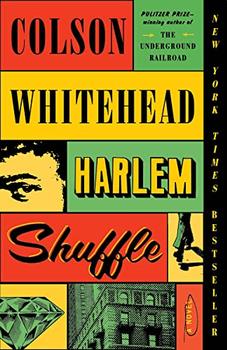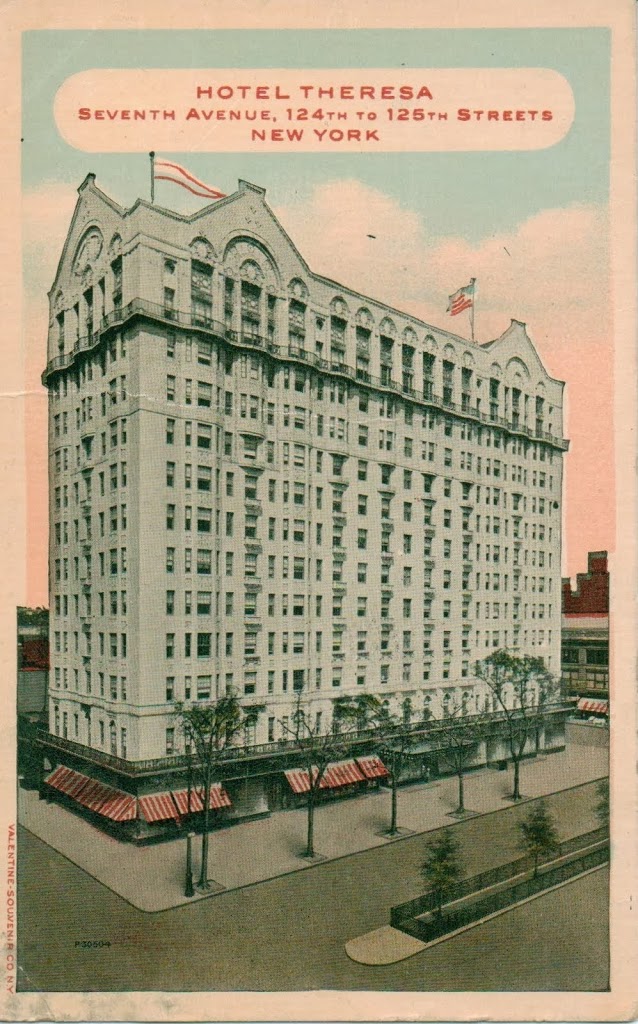Summary | Excerpt | Reading Guide | Reviews | Beyond the Book | Read-Alikes | Genres & Themes | Author Bio

This article relates to Harlem Shuffle
 Harlem, a neighborhood in Upper Manhattan, was a crucial setting during the Civil Rights Era, which spanned approximately 1950 to 1964, arguably culminating with the passage of the controversial Civil Rights Act of 1964. The Great Migration in the early 20th century brought a considerable number of Black residents to the neighborhood, and it became a hotbed of cultural growth and political activism during the Harlem Renaissance in the 1920s and '30s. This period set the scene for the legal and social strides made during the revolutionary Civil Rights Era.
Harlem, a neighborhood in Upper Manhattan, was a crucial setting during the Civil Rights Era, which spanned approximately 1950 to 1964, arguably culminating with the passage of the controversial Civil Rights Act of 1964. The Great Migration in the early 20th century brought a considerable number of Black residents to the neighborhood, and it became a hotbed of cultural growth and political activism during the Harlem Renaissance in the 1920s and '30s. This period set the scene for the legal and social strides made during the revolutionary Civil Rights Era.
Harlem was the nexus for many important figures, places and key events in 20th-century Black history. Langston Hughes wrote many powerful poems while in Harlem, and Dr. Martin Luther King, Jr. delivered one of his most important speeches, "Beyond Vietnam," at Riverside Church, located on Harlem's Riverside Drive. Both the National Urban League and the United Negro Improvement Association were founded in Harlem, the latter under the direction of activist Marcus Garvey. The Hotel Theresa was a common meeting place for Civil Rights leaders in the 1950s and '60s. Malcolm X worked out of the hotel and made arrangements for Fidel Castro and his entourage to stay there during a 1960 visit to the United States.
Placing the first heist from Harlem Shuffle in the Hotel Theresa, Colson Whitehead makes a clear symbolic connection between the novel's setting and its thematic examination of the Civil Rights Era and the impact that it made on New York City. While Harlem was a space of resistance and revolution for Black America, no fortress remains impenetrable. By the last heist, the backdrop is frighteningly relevant to the present day — it is set against the uprising of 1964, which arose from the murder of an unarmed 15-year-old Black boy by a white cop. The uprising lasted six days in July and resulted in one death, around 100 injuries and 450 arrests. It set off a wave of similar actions across the United States throughout the summer of 1964.
The exact end of the Civil Rights Era is unclear (as is the official beginning), but the movement ebbed after the assassination of several important leaders, including Medgar Edgars in 1964, Malcolm X in 1965 and Dr. Martin Luther King, Jr. in 1968. Furthermore, the passage of the Civil Rights Act in 1964 ushered in an insidious transformation of racism in which many Americans believed that racial inequality had been vanquished. By addressing only an intent to discriminate, the Civil Rights Act championed a deceptively poisonous idea of colorblindness, without dismantling the structures that caused disparities and discrimination or considering what real equity might look like.
Ultimately, the goals of the Civil Rights Movement related to poverty, economic discrimination and wealth disparity were never fully realized. This is reflected in how gentrification has spread through Harlem. Gentrification of the area began in earnest in the late 1990s with the passing of the Third Party Transfer Program, which allowed the transfer of government-owned property to private developers. Central Harlem was 97% Black in 1960; in 2019, that number was down to 54%. As gentrification prices long-time residents out of the neighborhood and threatens buildings with historical and cultural significance, such as the Harlem Ballroom and Casino and the Lenox Lounge, one wonders how lasting and significant the impacts of the Civil Rights Era truly were.
Theresa Hotel postcard souvenir, courtesy of The Bowery Boys
Filed under Places, Cultures & Identities
![]() This "beyond the book article" relates to Harlem Shuffle. It originally ran in September 2021 and has been updated for the
August 2022 paperback edition.
Go to magazine.
This "beyond the book article" relates to Harlem Shuffle. It originally ran in September 2021 and has been updated for the
August 2022 paperback edition.
Go to magazine.






Your guide toexceptional books
BookBrowse seeks out and recommends the best in contemporary fiction and nonfiction—books that not only engage and entertain but also deepen our understanding of ourselves and the world around us.